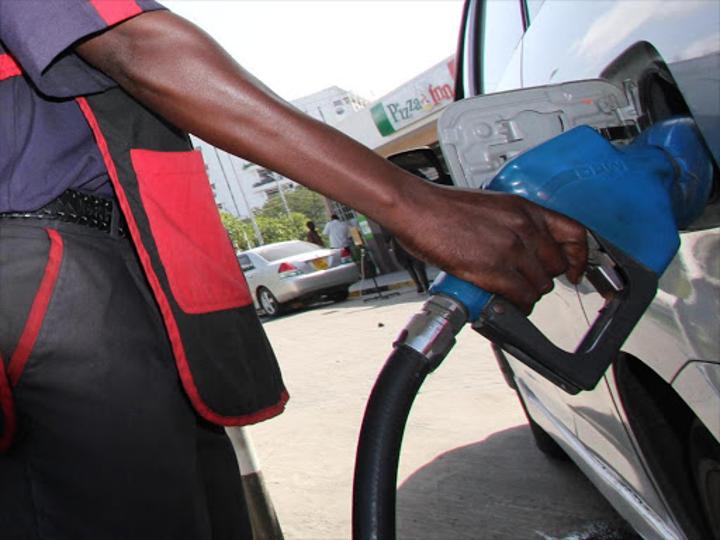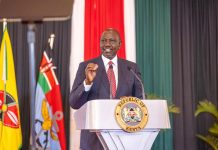Africa-Press – Kenya. Fuel prices will remain unchanged for the second month in a row as government continues to utilise the Petroleum Development Levy (PDL) to cushion consumers.
Until September 14, a litre Petrol will retail at Sh159.12, Kerosene at Sh127.9 4 and diesel Sh140.00.
Without the subsidy prices would have increased to Sh214.13 for diesel, sh206.17 for petrol and Sh 202.11 for Kerosene.
The Energy and Petroleum Regulatory Authority (EPRA) has retained pump prices for petroleum products despite increase in the landed cost.
The landed cost of imported super petrol increased by 2.99 per cent from $1,042.85 (Sh68,276) (Sh71,206) per cubic metre in June to $1,74.01 (Sh67,825.18) in July.
For diesel, the cost increased by 8.22 per cent from $1,019.29 (Sh121,754.19) per cubic metre to $1,103.03 (Sh131,756.93) per cubic metre wile that of kerosene went up by 14.90 per cent to $1,111.53 (Sh132,772.26) per cubic from $967.42 (Sh115,558.32)
Over the same period, importers also incurred heavy costs on weakening shilling which depreciated by 1.17 per cent to 119.92 per US dollar compared to an average trading rate of 118.53 the previous month.
“EPRA assures the public of its continued commitment and protection of the interest to the observance of fair competition and protection of the interests of both consumers and investors in the energy and petroleum sectors,” EPRA director general Daniel Kiptoo said.
Last month, statehouse announced a Sh16.675 billion subsidy to retain current fuel prices foregoing plans to scrap the programme.
Scrapping the subsidy would have seen Kerosene mostly used by low income households for cooking and lighting would retail at Sh181.13 per litre last month, Sh53 more while a litre of diesel would have hit Sh193.64
Last month, the National Treasury termed the ongoing fuel subsidy programme unsustainable and announced plans to scrap it.
The exchequer said fuel subsidies are inefficient and often lead to misallocation of resources and crowding out of public spending on productive sectors.
“This results in unintended consequences such as disproportionately benefiting the well-off. Even though scrapping off the plan will trigger a price hike, it will not be to the levels witnessed before Russia- Ukraine crisis,” National Treasury CS Ukur Yatani said.
However, statehouse spokesperson Kanze Dena in a statement said the government renewed its commitment to provide further direct relief to Kenyans by rolling out more subsidies.
For More News And Analysis About Kenya Follow Africa-Press






![[PHOTOS] Ruto joins Kenyans on New Year’s Eve [PHOTOS] Ruto joins Kenyans on New Year’s Eve](https://static.africa-press.net/kenya/sites/28/2026/01/sm_1767246637.167666-218x150.jpg)